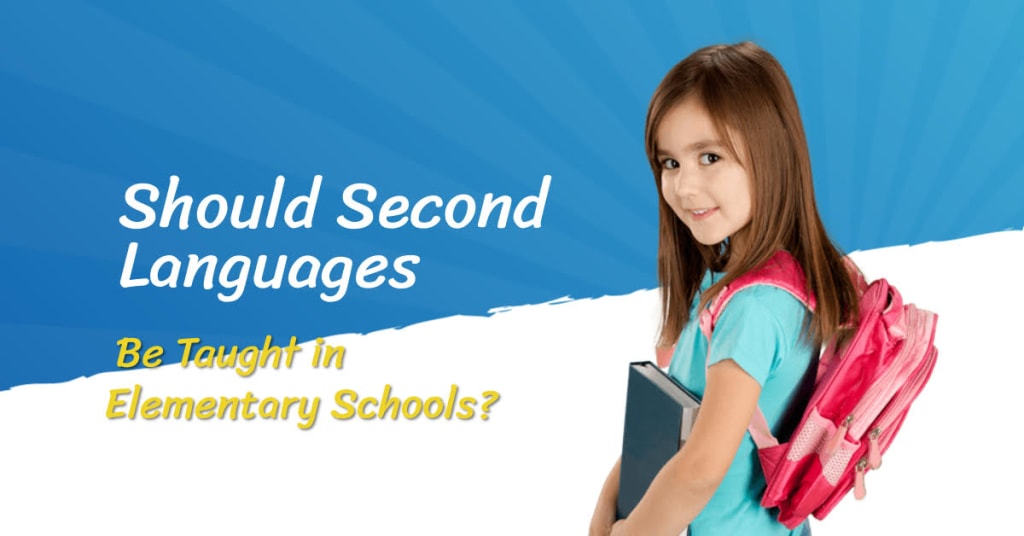Should Second Languages Be Taught in Elementary Schools?
Is It Important?

Kids these days have notoriously busy schedules. They start school very early, and they often continue throughout the afternoon and evening with activities and practices. And then there’s homework – do you remember ever having so many assignments to complete in one night?
With all that stuff to do, kids don’t need any added pressure. They learn math, science, English, and history, and it seems like more than enough. But is it? What about adding a second language to the curriculum? Is it too much, or is it more beneficial than overloading?
What Schools Think
If you look at the numbers, it’s easy to see what public schools, in general, think of second languages for elementary school-age children. Ten years ago, about one-quarter of public elementary schools taught foreign language. Now, only about 15 percent do. It’s a pretty steep drop for an already low number.
Why are foreign language programs being cut across the country? With decreasing budgets, they’re forced to make some changes and sacrifices. Foreign language is seen as a non-essential subject, so it’s often one of the first things to go when money is tight. It doesn’t
mean that educators don’t see the value of learning a second language; it’s just considered an elective.
What Parents Think
Most parents don’t fight the school system when a second language gets cut, and many children never had one to cut, to begin with. There are many parents who want their children to learn a foreign language, so they enroll them in an extracurricular class or look into private schools that teach it. You can see the demand for foreign language options for elementary school children is definitely there – there are more than twice as many public and private schools that offer foreign language immersion (usually half of the day taught entirely in the second language) now than there were 15 years ago. The waiting lists for these schools are very long and constantly growing.
What the Experts Think
Language experts fully agree that learning a second language is extremely beneficial for children, especially when they’re young. It’s important to start teaching a language as early as possible if you want your child to really be bilingual; the younger a child is, the easier it is for them to learn fast. While it’s still great that a higher percentage of high schools offer foreign language classes, it’s even better when instruction starts in grade school. Children who learn another language have increased reasoning and comprehension skills in all subjects, as well as better grades, statistics show.
What the Kids Think
Lots of times kids don’t really “know what’s good for them,” but how do they feel about a foreign language? In general, most young children enjoy learning one. The younger they start, the more likely they are to want to continue practicing and learning as they get older. Elementary school-age children usually enjoy school, and that makes it an even better time to introduce a new language. And if the kids love it, is more reason even really necessary?
About the Creator
Enjoyed the story? Support the Creator.
Subscribe for free to receive all their stories in your feed. You could also pledge your support or give them a one-off tip, letting them know you appreciate their work.






Comments
There are no comments for this story
Be the first to respond and start the conversation.